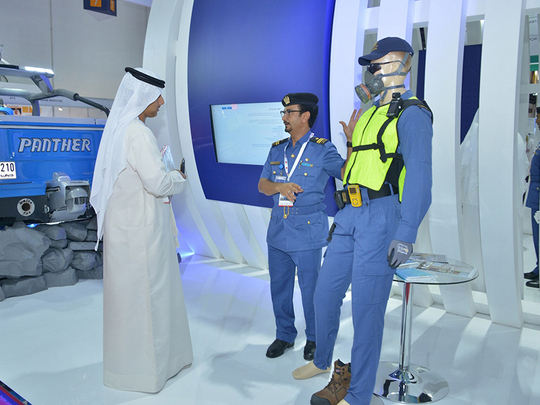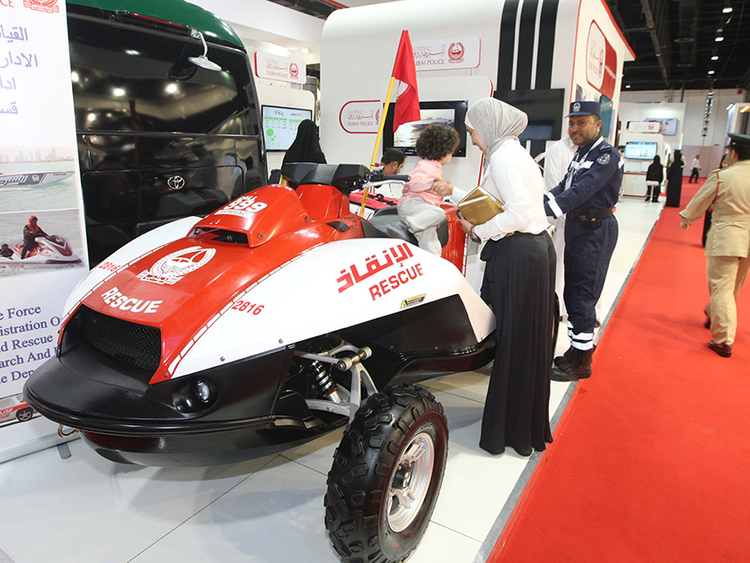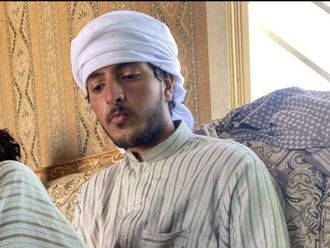
Dubai: The Dubai Government Achievements Exhibition (DGAF), which concludes today, showcased how technology has enhanced the delivery of services to users.
On the last day of the exhibition, Gulf News visited kiosks such as The Islamic Affairs and Charitable Activities Department, International Humanitarian City and Knowledge and Human Development Authority (KHDA) who exhibited their existing and upcoming smart services. Matching the government’s vision of transforming Dubai into a smart city, these entities strive to offer services that can be easily accessed by the public anywhere, and anytime with the click of a button.
Here are some highlights from the exhibition, which was held at the Dubai World Trade Centre for the third consecutive year.
The Islamic Affairs and Charitable Activities Department: Smart mosques the way forward
It showcased an array of its services which have been turned into smart services. The department, which regulates, licenses and registers charity organisations and events, made its smart services available as an application for both IOS and Android devices.
Abdullah Aldala, Director of the Corporate Excellence Department, explained that all 27 services offered by the department have been turned into smart services to allow 100 per cent easy accessibility for users.
“We have introduced smart kiosks in malls and airports for tourists as well,” he said. “Through them, tourists can learn about and understand the country’s tradition and culture from an Islamic point of view.”
Another smart service being offered is the Emirate Charity Gate, which is a centralised database for charity organisations that prevents duplication of donations and organises the allocation of donations.
“Through this smart service, we direct donations to the places where money is needed the most,” he said. “Of course, we carry out analyses and do research to find out the areas most in need of donations.”
Aldalal said that the database has allowed charities to work together to support the same cause and allows donators to view the projects they have donated to through the application downloaded on their phones.
“On the application, they can click on the project they have donated to under the category it falls under, for instance, schools or hospitals, which then shows them the size of the project, where exactly it is taking place and the logistics of it,” he explained.
Among the other smart services offered is the smart mosque. Two aspects of the smart mosque are the QR code and smart controls for the mosque’s functions.
“The QR code can be scanned by anyone’s phone and it will provide them with information such as who built the mosque, when it was built and its size,” said Aldalal.
The second aspect of a smart mosque involves automation, or in other words, controlling different functions in the mosque such as lighting, air-conditioning and the sound system through a small touch screen installed on the wall of the mosque.
“The smart function in the mosque also has sensors that can estimate the number of people in the mosque and adjust the air-conditioning temperature accordingly,” said Aldalal.
The smart mosque service has been installed in two mosques in the country so far and will be integrated into other mosques in the future.
International Humanitarian City: easing licensing for charity oganisations
The International Humanitarian City, which registers, licenses and offer logistical support for organisations in the charity field, has 52 non-governmental organisations, 12 commercial organisations and 12 United Nations organisations currently registered.
The usual process involved organisations visiting the International Humanitarian City office for licensing purposes, registration of an organisation and sorting of visas. Today, the service is offered online, making the registration and payment process easier, especially for organisations abroad.
The service aimed at easing the licensing process, allows organisations to register with a click of a mouse and receive a confirmation message once it has been approved.
“The smart service allows organisations to register for a licence, make necessary payments online, renew licences, apply for new employment visas, renew visas and even cancel visas,” said Lilat Naval, Government Services Officer of International Humanitarian City.
Knowledge and Human Development Authority: App for employment
The Knowledge and Human Development Authority (KHDA) is responsible for the growth and quality of private schools across Dubai. The KHDA has offered an array of smart services for its users, especially for parents of children in private schools, such as a mobile app with all the private schools across Dubai and their ratings. One of the many smart services the KHDA offers today is the hiring and employment of applicants who wish to work in the regulatory authority.
They no longer accept CVs but rather sound bytes and videos from the applicants on their recent achievements and areas of expertise. Applicants also have the option to list the social media platforms in which they participate.
Additionally, all publications and infographics are posted online to offer parents the necessary information about private education. Also, the KHDA strives to be as transparent as possible by providing school ratings and location maps online for public knowledge.
Maria Botros is a trainee at Gulf News













